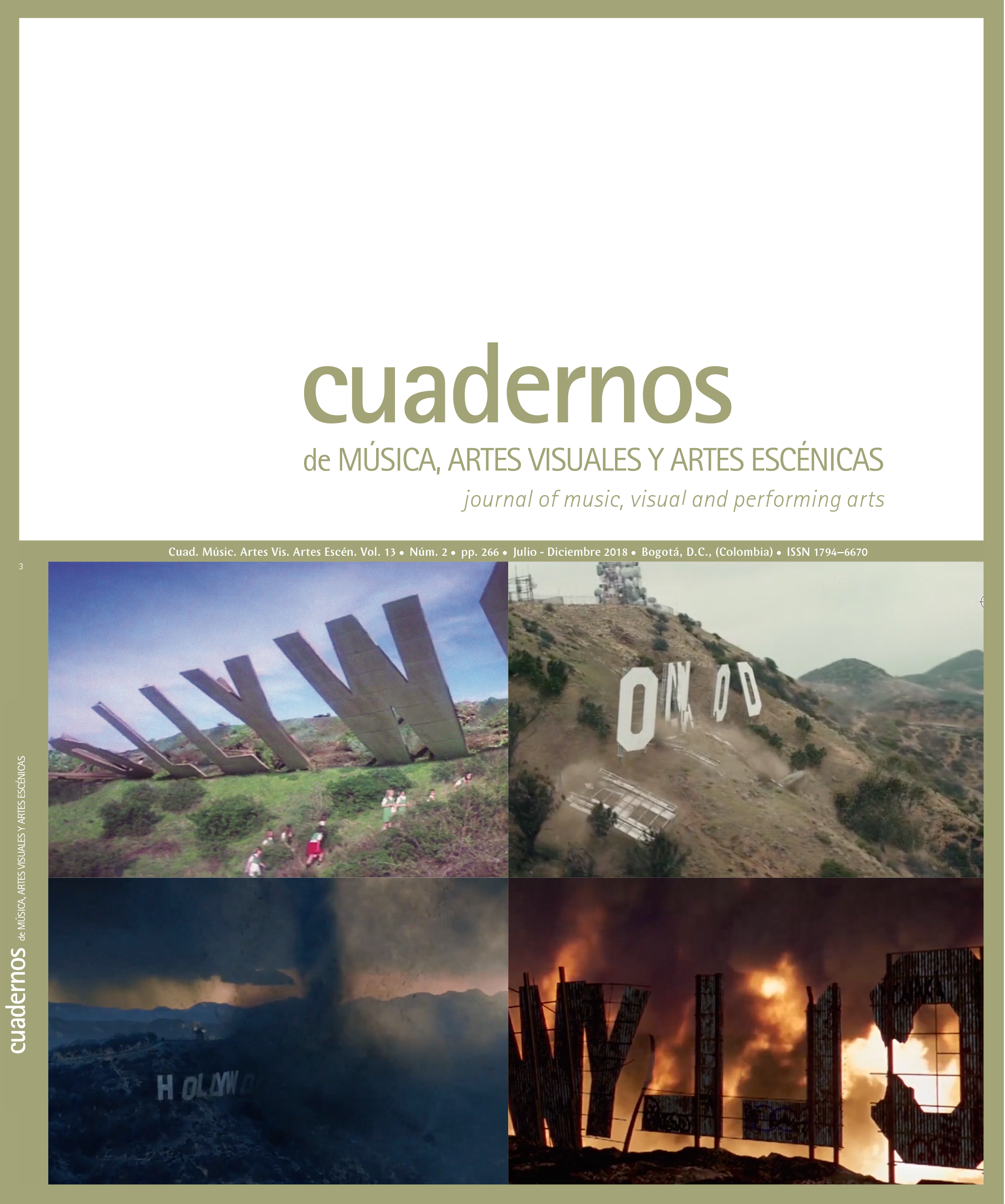Resumen
En este artículo exploro cómo los músicos contemporáneos que utilizan las tecnologías electrónicas en la música improvisada conceptualizan la habilidad y el virtuosismo en sus prácticas musicales. Esto incluye ideas sobre el papel y la función de la tecnología, las habilidades físicas aprendidas y repetibles, la adquisición de habilidades, la transmisión de habilidades y la proyección de la habilidad aprendida de los instrumentos tradicionales a nuevos instrumentos. El uso de instrumentos idiosincrásicos e individualmente construidos—instrumentos con poca o ninguna historia de una práctica de interpretación— por parte de los músicos hace de este campo un recurso rico para analizar cómo se desarrollan estos tipos de concepciones. Entre los músicos que entrevisté, la relación entre la habilidad física y el virtuosismo es particularmente controvertida. Si bien frecuentemente valoran dicha habilidad, también la relacionan con los excesos percibidos de ciertas facciones dentro de la música occidental, el jazz y otras prácticas establecidas de interpretación musical en las que la habilidad física se considera combinada con (o considerada el elemento primario de) la habilidad musical escrita a gran escala. Esta percepción del exceso y la priorización de la habilidad física ha llevado a algunos de los músicos entrevistados a adoptar la antivirtuosidad como una contra-ideología reactiva o a explorar los conceptos menos tangibles de audición, creatividad, imaginación, memoria, novedad, innovación e incluso ideas de la gestión como constitutiva de virtuosismo musical y habilidad. Este artículo hace parte de un examen etnográfico más amplio de una muestra representativa diversa de músicos contemporáneos que improvisan con tecnologías electrónicas nuevas, reutilizadas y reinventadas, incluyendo Robert Henke (uno de los autores originales del paquete de software Ableton Live, inmensamente popular), el guitarrista Nels Cline (Wilco, Yoko Ono, entre otros), la compositora y flautista Anne La Berge, y el trompetista y compositor Wadada Leo Smith.
Bresler, Liora. 2004. Knowing Bodies, Moving Minds: Towards Embodied Teaching and Learning. Boston: Kluwer Academic Publishers.
Clark, Andy. 2003. Natural-Born Cyborgs: Minds, Technologies, and the Future of Human Intelligence. New York: Oxford University Press.
Clarke, Bruce, and Mark B. N. Hansen. 2009. Emergence and Embodiment: New Essays on Second- Order Systems Theory. Durham: Duke University Press.
Cline, Nels. 2011. “Personal interview by the author at the home of Nels Cline in Los Angeles, California.” December 28. MP4 File. Personal Collection.
Cycling74. Twitter Post. November 16, 2012, 3:17 PM. https://twitter.com/cycling74/ status/269580002809507840.
di Placido, Olivier. 2010. “Personal interview by the author at the home of Olivier di Placido in Berlin, Germany.” August 28. MP4 File. Personal Collection.
Dourish, Paul. 2001. Where the Action Is: The Foundations of Embodied Interaction. Cambridge: MIT Press. Henke, Robert. 2010. “Personal interview by the author at the home of Robert Henke in Berlin, Germany.” August 12. MP4 File. Personal Collection.
La Berge, Anne. 2010. “Personal interview by the author at the home of Anne La Berge in Amsterdam, The Netherlands.” August 1. MP4 File. Personal Collection.
Lippit, Takuro Mizuta (dj sniff). 2010. “Personal interview by the author at STEIM in Amsterdam, The Netherlands.” August 3. MP4 File. Personal Collection.
Makino, Yutaka. 2010. “Personal interview by the author at the home of Yutaka Makino in Berlin, Germany.” August 19. MP4 File. Personal Collection.
Ryan, Joel. 2010. “Personal interview by the author at STEIM in Amsterdam, The Netherlands.” August 3. MP4 File. Personal Collection.
Schick, Ignaz. 2010. “Personal interview by the author in Volkspark Friedrichshain, Berlin, Germany.” September 4. MP4 File. Personal Collection.
Shaw, Debra Benita. 2008. Technoculture: The Key Concepts. Oxford; New York: Berg Publishers. Smith, Wadada Leo. 2012. “Personal interview by the author at the home of Wadada Leo Smith in Ventura, California.” November 28. MP4 File. Personal Collection.
Taylor, Gregory. 2010. “Personal interview by the author at STEIM in Amsterdam, The Netherlands.” August 6. MP4 File. Personal Collection.
Esta revista científica se encuentra registrada bajo la licencia Creative Commons Reconocimiento 4.0 Internacional. Por lo tanto, esta obra se puede reproducir, distribuir y comunicar públicamente en formato digital, siempre que se reconozca el nombre de los autores y a la Pontificia Universidad Javeriana. Se permite citar, adaptar, transformar, autoarchivar, republicar y crear a partir del material, para cualquier finalidad, siempre que se reconozca adecuadamente la autoría, se proporcione un enlace a la obra original y se indique si se han realizado cambios. La Pontificia Universidad Javeriana no retiene los derechos sobre las obras publicadas y los contenidos son responsabilidad exclusiva de los autores, quienes conservan sus derechos morales, intelectuales, de privacidad y publicidad.
El aval sobre la intervención de la obra (revisión, corrección de estilo, traducción, diagramación) y su posterior divulgación se otorga mediante una licencia de uso y no a través de una cesión de derechos, lo que representa que la revista y la Pontificia Universidad Javeriana se eximen de cualquier responsabilidad que se pueda derivar de una mala práctica ética por parte de los autores. Como consecuencia de la protección brindada por la licencia de uso, la revista puede publicar retractaciones o corregir la información ya publicada. La publicación de contenidos en esta revista no representa regalías para los contribuyentes.



